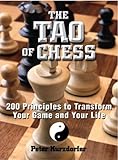
Looking at the curves in Stephenson's research, at this point about 10% of the patients fall off the curve each year in my group (those who started salvage when their PSA was between 0.51 and 1.0). At two years, 68% were free from progression; at three years 59%, at four years 55%, and at six years, 40%. The good news is, after six years the curve starts to flatten out, although there are still failures happening all the way out to at least ten years.
So I'm by no means safe. I will celebrate another "less than 0.1" reading, certainly, but I won't really start to feel like I'm out of the woods for another 7 or 8 years. With some cancers, there's a huge milestone at the five year mark, but not so with prostate cancer, since it generally moves a lot slower.

